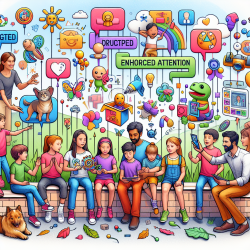Introduction
In the ever-evolving landscape of healthcare, continuous improvement is essential. One approach that has gained traction is Lean management, originally developed by Toyota to enhance efficiency and reduce waste. But how sustainable is Lean in pediatric healthcare? A recent realist review titled The sustainability of Lean in pediatric healthcare: a realist review sheds light on this question.
Understanding Lean in Healthcare
Lean is a management philosophy that aims to reduce costs and improve customer value through continuous improvement. It emphasizes eliminating waste and enhancing efficiency. In healthcare, Lean has been adopted to improve quality and efficiency, but its sustainability remains a challenge, especially in pediatric settings.
Key Findings from the Realist Review
The review identified several critical factors influencing the sustainability of Lean in pediatric healthcare:
- Sense-making and Value Congruency: Successful Lean implementation relies on stakeholders understanding and valuing the philosophy. If Lean aligns with their values, they are more likely to support and sustain it.
- Staff Engagement and Empowerment: Engaging healthcare professionals in Lean processes and empowering them to lead efforts is crucial. This involvement fosters a sense of ownership and motivation to sustain Lean practices.
- The Ripple Effect: Outcomes from Lean implementations can serve as contexts for sustainability. For instance, successful initial implementations can trigger further engagement and empowerment, leading to sustained efforts.
Implementing Lean in Pediatric Healthcare
For practitioners looking to implement Lean in pediatric settings, consider the following strategies:
- Align Values: Ensure that Lean principles align with the values of the organization and its staff. This alignment fosters a shared understanding and commitment to Lean efforts.
- Engage Staff: Actively involve healthcare professionals in Lean processes. Provide training and opportunities for them to lead initiatives, fostering a culture of continuous improvement.
- Monitor and Adapt: Continuously monitor the outcomes of Lean implementations and adapt strategies as needed. This adaptability ensures that Lean efforts remain relevant and effective.
Encouraging Further Research
While the realist review provides valuable insights, further research is needed to explore the mechanisms influencing Lean sustainability in pediatric healthcare. Practitioners are encouraged to contribute to this research by documenting their experiences and outcomes with Lean implementations.
Conclusion
Lean management holds promise for improving pediatric healthcare, but its sustainability depends on several factors, including value alignment, staff engagement, and adaptability. By understanding and addressing these factors, practitioners can enhance the effectiveness and longevity of Lean efforts.
To read the original research paper, please follow this link: The sustainability of Lean in pediatric healthcare: a realist review.










